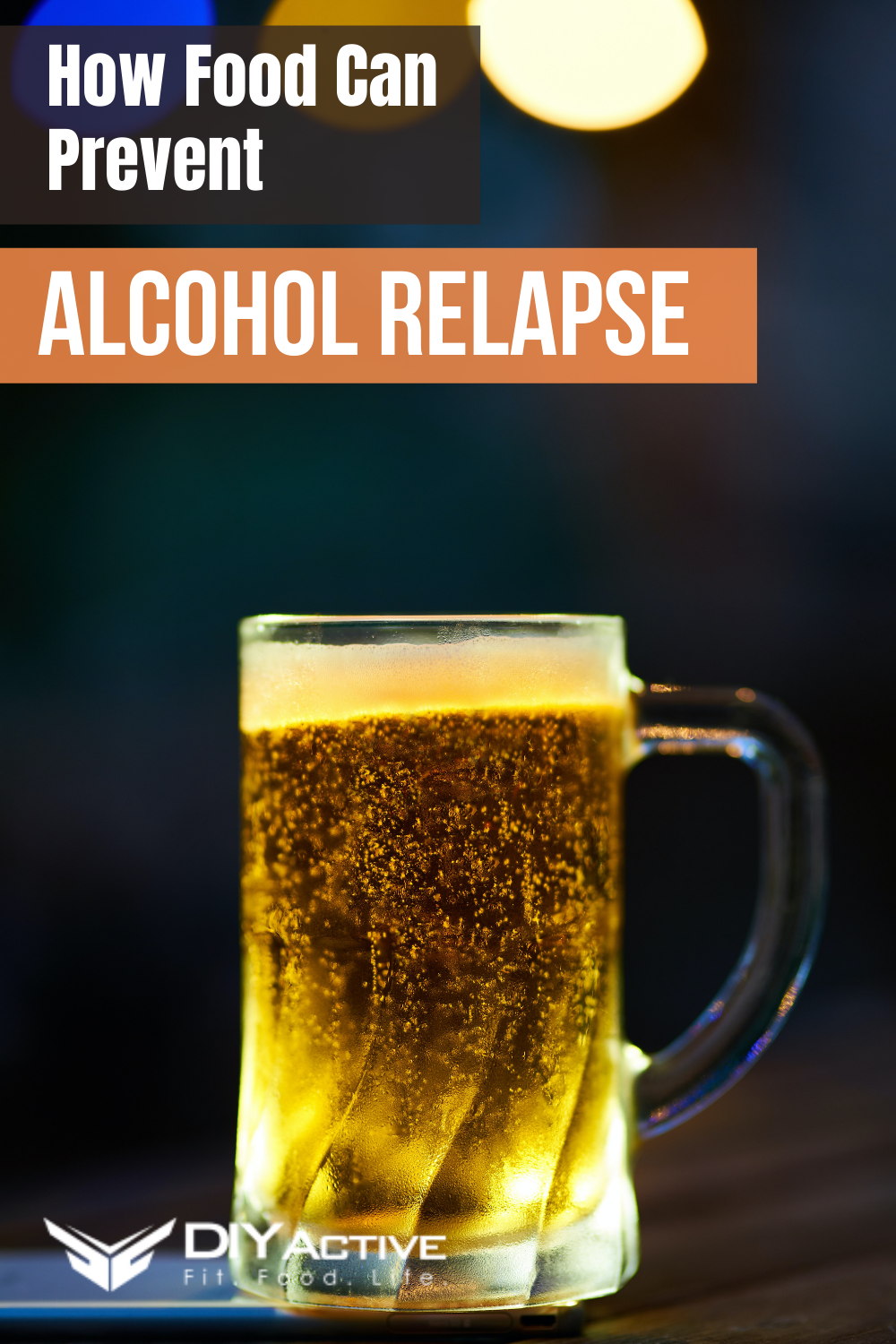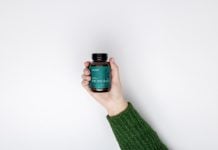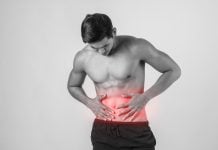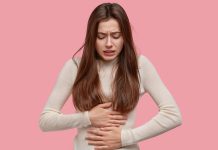
Food Can Prevent Alcohol Relapse
One of the things you have to change as a recovering addict—and this cuts across all substance abuse—is your diet. The type of food you eat during recovery will help you build a stronger or weaker immune system.
How Food Can Help You To Prevent Alcohol Relapse
This is because alcohol addiction is very harsh to the human body. When you’re addicted, you do not only lose weight; your body also lacks important nutrients that help you stay healthy.
Part of recovery is adding back the weight and becoming healthy again. Therefore, after rehabilitation, like the one offered at Jacksonhouserehab.com, you have to gain back the nutrients and weight you lost, and build a more robust immune system.
Note that the weaker you are, the higher your chances of relapsing, as the article will discuss later.
This article will help you explore the relationship between food and alcohol addiction. Once you understand this concept, you’re better placed to know how you can use food to avoid alcohol relapse.
Food And Alcohol Addiction
When you’re deep into alcoholism, it affects your appetite and eating patterns. Different drugs have different impacts. For example, people who are addicted to alcohol often don’t like to eat. As such, they may only eat one meal a day, and it may not necessarily be nutritious.
The same happens for people who heavily abuse hard drugs, such as cocaine. However, the eating habits for the latter are impoverished as they may not eat for days. This explains why such people tend to be extremely thin.
That said, the impact of alcohol addiction doesn’t end with poor eating habits. If anything, poor eating habits may end up disrupting your digestion, thereby causing damage to your gut system through complications such as vomiting, constipation, and diarrhea. Additionally, when you experience the three, sooner or later, your health deteriorates.
So, if alcohol addiction has such severe impacts on food consumption, there must be a way you can use food to avoid relapsing. Here’s how:
1. Food Helps Prevent Depression
Addiction is a brain disorder that causes you to have an irresistible urge to do or consume a given thing; eventually, you give in to the desire, which is known as a relapse. People battling addiction also often suffer from anxiety, depression, and isolation, which affect their emotions.
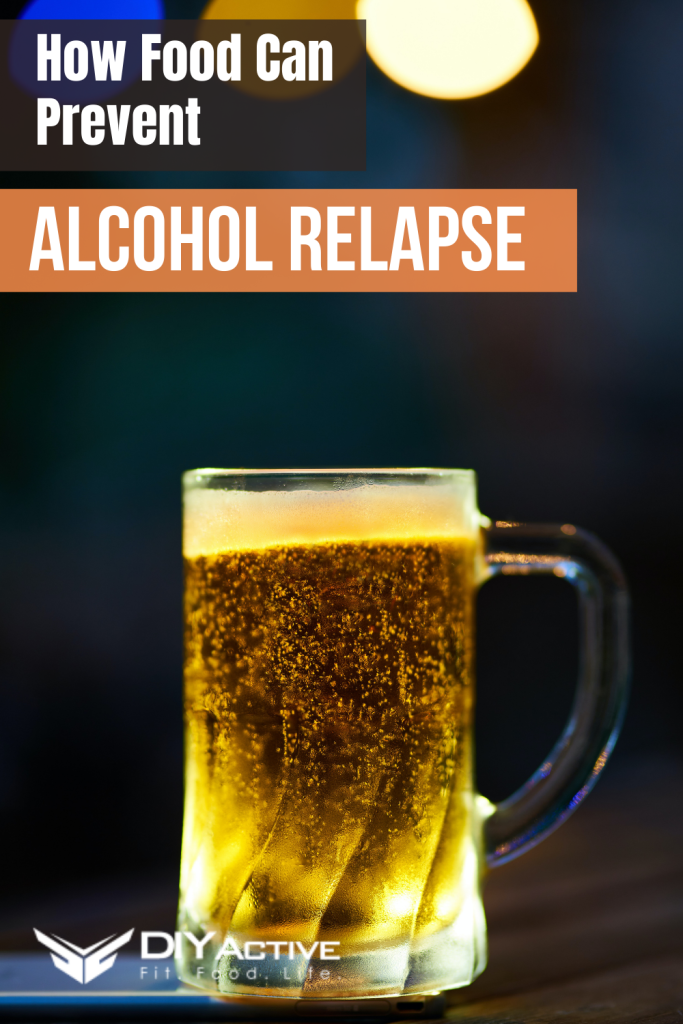 Therefore, in an attempt to cope with these extreme emotions, these people use drugs and alcohol to induce their dopamine levels and boost their happy moods. The brain gets into a routine and, eventually, they become addicted.
Therefore, in an attempt to cope with these extreme emotions, these people use drugs and alcohol to induce their dopamine levels and boost their happy moods. The brain gets into a routine and, eventually, they become addicted.
So, how does food solve this? Well, for starters, when you lack some macro-and micronutrients, such as omega-3 amino acids, you’re more prone to suffer from mental health issues, such as depression.
However, when you’re well-hydrated and your food has the proper nutrients, your mental health tends to be heathier by a mile. As such, you’ll experience fewer depressive episodes, and the anxiety will decrease or completely disappear. Also, since you’re in a brighter mood, you’re more likely to want to interact with others.
When your mental health is at its optimum level, you’re less likely to indulge in drugs to appear happy or deal with extremely low moods. In that case, if you’re previously an alcoholic, staying on the brighter side of your mental health will help you avoid needing alcohol to be happy; hence, you won’t relapse.
2. Food Helps Avoid Craving
Your brain produces brain chemicals, also known as neurotransmitters, that dictate your moods. When you have more or less of these brain chemicals, it affects your behavior. An imbalance in your neurotransmitter levels may cause you to be irritable, anxious, or have cravings for a given food or alcoholic item.
Additionally, it may lead to insomnia, paranoia, fatigue, and memory loss, among other metal-related problems.
You might be wondering how food comes in. According to research conducted by Dr. Richard Wurtman, the type of food you eat determines how many neurotransmitters are released.
Therefore, when you consume less food or if it lacks specific nutrients that affect the production of these brain chemicals, you’re more likely to experience cravings for certain food items or substances that’ll help you deal with moods, such as irritability, depression, and anxiety. In this case, the substance in question is alcohol, which means you’ll relapse.
Besides that, food containing high amounts of refined sugars destroys the brain cells. Your brain won’t have enough cells to produce enough neurotransmitters that protect your brain from oxidative stress.
Therefore, if you’re recovering from alcohol addiction, you should mind your food portions and their nutritional content.
3. Food Is Crucial During The Detoxification Stage
One of the most crucial stages of recovery from alcohol addiction is the detox stage. This is because the body loses a lot of minerals and vitamins during detoxification, adding to the ones you already lost when you’re addicted.
As mentioned earlier, the problem with losing these nutrients is that they disrupt digestion. When digestion is altered, the brain doesn’t function at its optimum, exposing you to cravings and depressive episodes that may lead to a relapse.
Therefore, since the body loses many nutrients during detox, and it’s among the first stages of recovery, you need to eat healthy to reduce the chances of relapsing.
4. Food May Be Used Instead Of Drugs
Sometimes, you can use food to substitute for alcohol cravings to protect you from relapsing. Experts recommend replacing food rich in caffeine or sugar to boost your dopamine levels instead of indulging in alcohol or other drugs.
However, such food items should be taken only after a prescription by the doctor and while under monitoring. This is because food addiction isn’t supposed to replace alcohol addiction. Both are equally harmful to your health and should be avoided by all means.
Wrap-Up
Healthy eating is part and parcel of alcohol addiction recovery. It also helps to avoid relapse since consumption of healthy food reduces the chances of depression and other mental illnesses that may push you to take alcohol again.
Proper diet also reduces cravings, helps hasten recovery during detoxification, and can sometimes be used in place of alcohol cravings. However, before implementing a meal plan for your recovering loved one or yourself, consult with a nutritionist to find the best diet plan.
Photo by Elina Sazonova from Pexels
Photo by Engin Akyurtfrom Pexels
